Weeds are a nuisance that can cause problems for your lawn in Kentucky. Some common weeds that you may see growing on your turf include clover, crabgrass, dandelions, wild violet, and nutsedge. Each of these weeds has its own unique characteristics, but they all have one thing in common – they can be difficult to control and can negatively impact the health and appearance of your lawn. Fortunately, there are ways to keep these weeds at bay, such as regularly applying pre- and post-emergent weed control treatments.
Clover is a perennial weed commonly found on lawns in Kentucky.
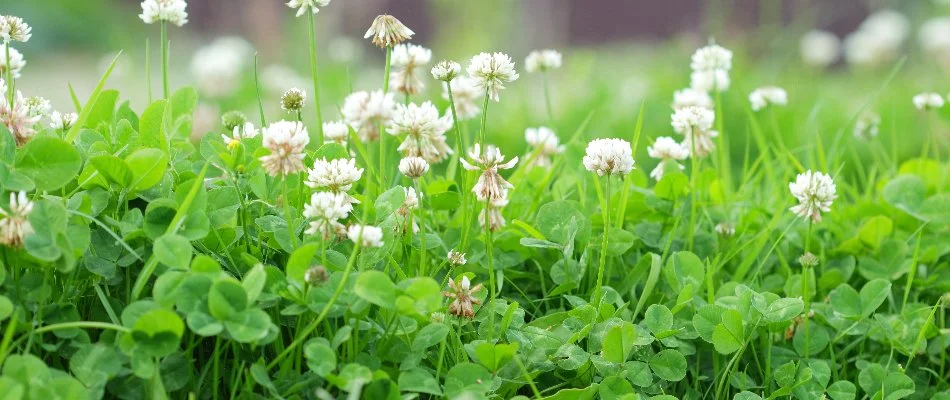
Clover is a perennial weed that is commonly found in lawns throughout Kentucky. It has three leaves that grow in clusters and produces small, white flowers that bloom in the spring and summer. This weed thrives in moist soil and can quickly spread across your lawn if left unchecked. Clover can be difficult to control because it can easily regrow from its extensive root system. To effectively manage clover infestations, it's best to use a combination of pre- and post-emergent weed control treatments.
Crabgrass is an annual grassy weed with light green leaves.
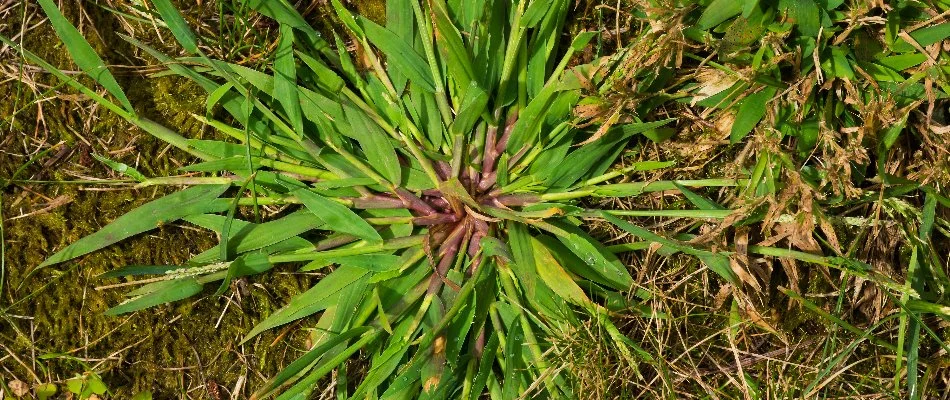
Another weed you may notice on your lawn in Kentucky is crabgrass. It has wide, flat, light green leaves and stems that branch out from the center, resembling crab legs, which is how it got its name. This weed thrives in warm temperatures and can quickly take over your lawn if not controlled. Crabgrass can be difficult to manage because it can produce thousands of seeds per plant, allowing it to spread rapidly. The best way to keep this weed from overrunning your turf is with regular weed control treatments.
Dandelions boast bright, yellow flowers and are quick spreaders.
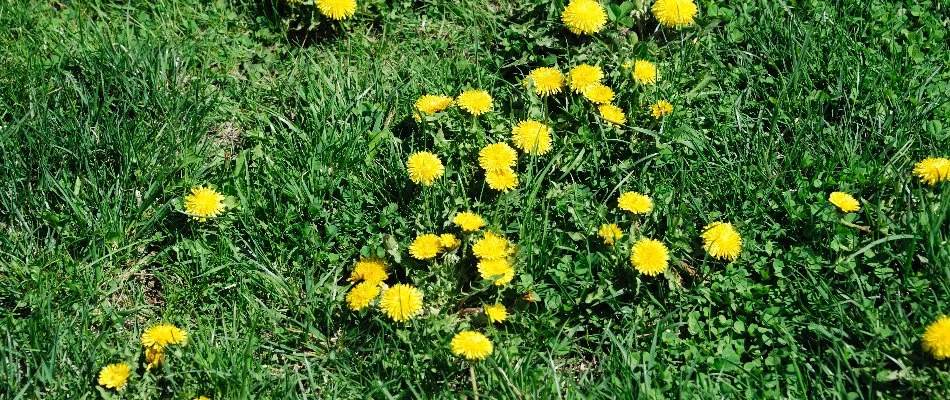
Dandelions are perennial weeds that are easily recognizable by their bright, yellow flowers or white seed heads. They have long taproots that can reach deep into the soil, making them difficult to remove completely. Dandelions thrive in sunny areas and can quickly spread across your lawn if left unchecked, making weed control treatments necessary to stay on top of them.
Wild violet is a perennial weed with small, purple flowers.
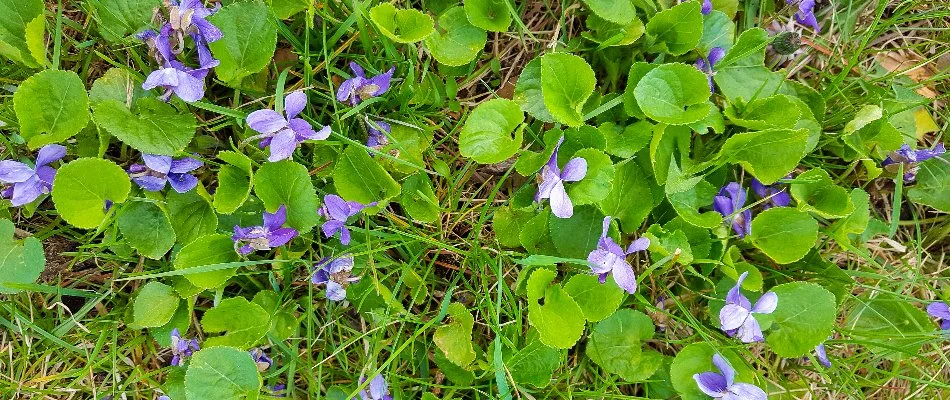
Wild violet is a perennial weed that causes problems for lawns in Kentucky. It has heart-shaped leaves and produces small, purple flowers that bloom in the spring and summer. This weed thrives in moist soil and can spread through seeds and rhizomes, which are horizontal underground roots. Wild violet can be difficult to control because it can easily regrow from its extensive root system. Because of this, it's best to use a combination of pre- and post-emergent weed control treatments to combat it at both ends of its life cycle.
Nutsedge is an aggressive weed that resembles desirable turfgrass.
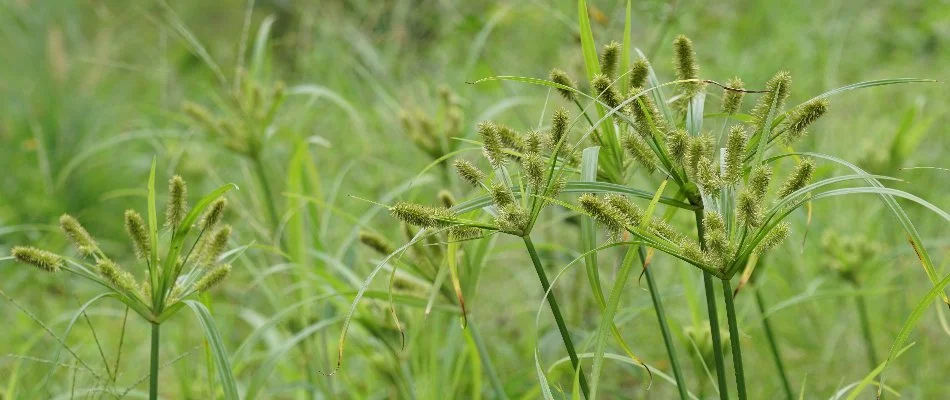
The last weed to keep an eye out for on your lawn is nutsedge. It closely resembles desirable turfgrass, but it has triangular stems that distinguish it. This weed thrives in wet soil and aggressively spreads through tubers, rhizomes, and seeds. Nutsedge is especially difficult to control because of these different spreading methods. Ongoing lawn care and weed control applications will ensure this weed stays off your turf.
Give us a call today to schedule our weed control service.
If you want to keep your lawn free of weeds like clover, crabgrass, dandelions, wild violet, and nutsedge, we are the team to turn to. At Turf Tenders, we offer a weed control service that includes both pre- and post-emergent treatments to prevent weeds from sprouting and eliminate any existing ones. This service also comes with fertilization to provide your grass with the nutrients it needs to thrive and naturally fight off weed infestations.
Residential and commercial properties, as well as HOAs, in Louisville, St. Matthews, Indian Hills, KY, and throughout the surrounding areas can take advantage of our weed control service. Give us a call today at (502) 861-6637 to schedule and enjoy a weed-free lawn!

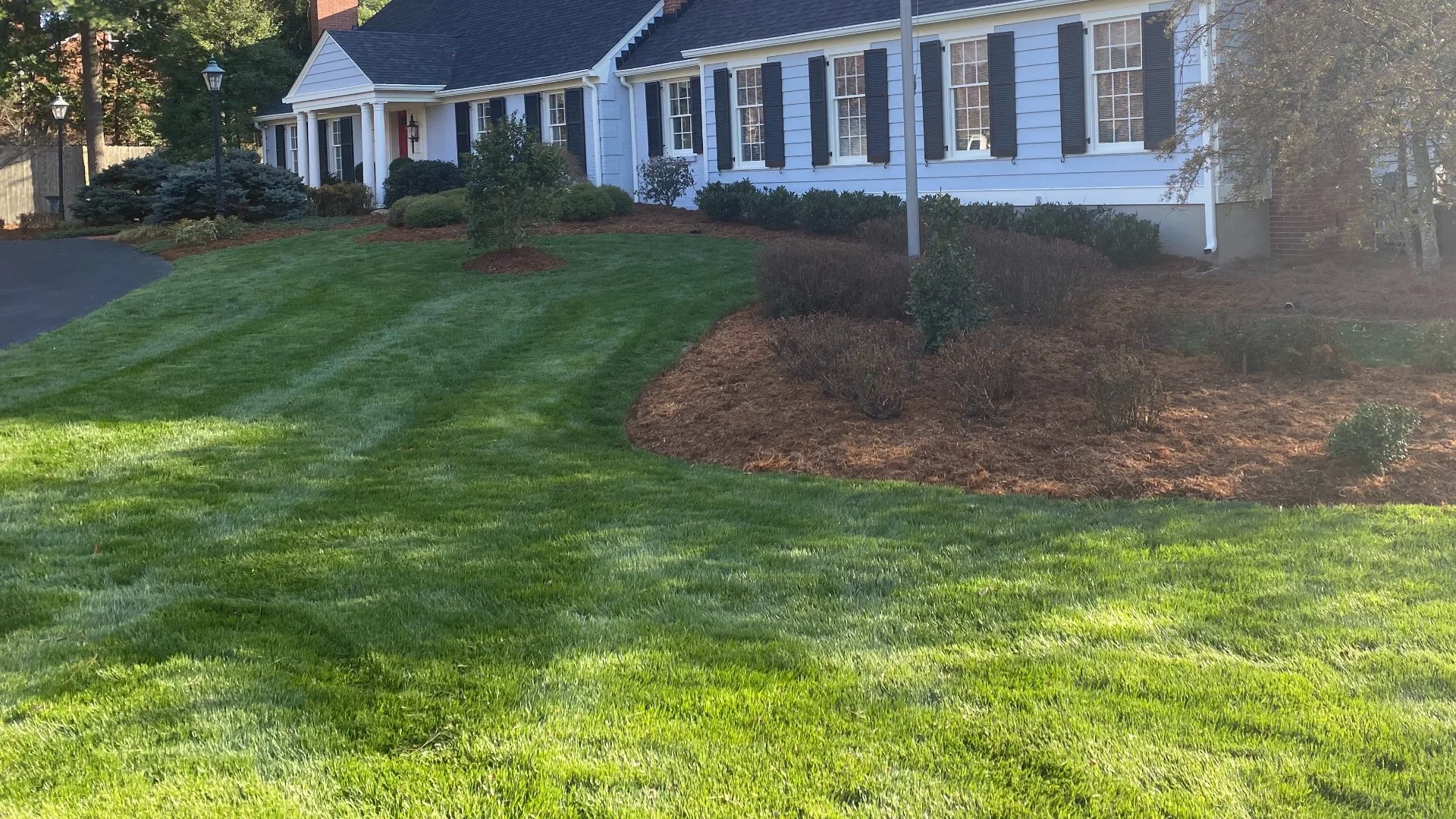

Comments (0)
Thanks for your comment!
Thanks for your feedback! Your comments have been successfully submitted! Please note, all comments require admin approval prior to display.
Error submitting comment!
There is a problem with your comment, please see below and try again.